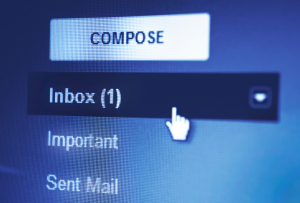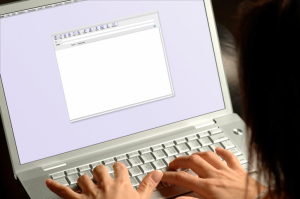Some studies show that up to 93 percent of human communication is non-verbal. Cues like smiles, eye contact, and body movements can reveal what a person is thinking before the person even says it. When speaking, tone, inflection, volume, and cadence can draw an incredible amount of information out of the meaning behind the words people speak.
Email exchanges put a wall between communicating parties that allow none of that interpretation. Text on a screen can be and often is easily misinterpreted. At work, this can be at best uncomfortable and occasionally disastrous.
Follow these tips to avoid poor communication and misunderstandings in modern workplace communication.
Email isn’t conversation – different rules apply.
Sarcasm
The number one reason for one person reading something in an email that the sender did not intend is misinterpretation of tone. Sarcasm, awesome when done well in person, has everything to do with tone.
Any remark that’s ironic or that expresses a negative thought through a falsely positive statement could be interpreted as literal. That is usually followed by an uncomfortable back and forth in which you explain that you were kidding and the other person pretends to have known you were kidding all along.
Careless Humor
Sense of humor is like style: Most people think they have it, and very few actually do. When you joke in an email, make sure the email is going to a person with whom you have an established rapport, who has proven to get and appreciate your humor.
There are few things that make a person cringe more than a bad – or even worse, offensive or inappropriate or uncomfortable – joke in an email to which you then have to respond. If you have to be funny, remember that work emails are forever, and they come with a forward button: Avoid sex, race, religion, and politics.
Being Pushy
It’s easy to come off as rude or pushy in emails without meaning to do so. Some experts think it’s because of brevity. People can appear curt in emails because of the accepted use of abbreviation that would be unacceptable – or impossible – in spoken communication. When “please” and “thank you” become “plz” and “thx,” the very basics of common courtesy are compromised, and an otherwise pleasant back and forth leaves one person feeling pushed around or under-appreciated.
Common Pitfalls
USING ALL CAPS DOES NOT CONVEY IMPORTANCE. IT JUST MAKES YOU APPEAR TO BE SHOUTING. using all lowercase, even with proper names like new zealand and jennifer, makes it appear that you’re mumbling, oblivious, or disrespectful.
Emoticons are great – for personal emails. Avoid them at work. If you need a colon and a closed parenthesis to convey that you’re happy, work on your email’s tone :).

Don’t presume people will interpret your tone correctly when using sarcasm in an email.
Email is how we talk at work when we’re not talking. Just as with conversation, there is an art to email. Using the words of casual conversation in the context of email can go awry very quickly. Know your medium and use it well.
Andrew Lisa is a freelance writer living in Los Angeles. He writes about workplace communications and Facebook recruiting.






Leave A Comment